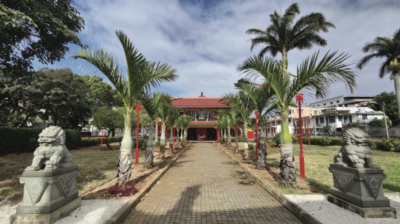"Xiculungo" - Social Relations of Urban Poverty in Maputo, Mozambique
How to cite this publication:
Inge Tvedten, Margarida Paulo, Carmeliza Rosário (2007). "Xiculungo" - Social Relations of Urban Poverty in Maputo, Mozambique. Bergen: Chr. Michelsen Institute (CMI Report R 2007: 13)
Portuguese version: "Xiculungo" Relações Sociais da Pobreza Urbana em Maputo, Moçambique
This report is the second in a series of six participatory and qualitative studies on poverty in Mozambique, undertaken as part of the monitoring and evaluation of Mozambique's poverty reduction strategy. The urban population of Mozambique is estimated at 30 percent, and of Maputo's 1.3 million inhabitants 53 percent are defined as poor. The large majority live in congested semi-formal and informal settlement areas, or bairros. While the structures and formal responsibilities of the various administrative levels are clearly defined, the municipality suffers from insufficient human and financial resources and consequently from inadequate provision of services such as water, electricity, sanitation and secure tenure.
The study reveals the primary importance of employment and income for coping in an urban environment, where money is an integral part of most relationships. Formal employment opportunities are scarce and most people depend on a fragile informal economy with low returns. Upward social mobility is also inhibited by the high costs of land, housing, public services and transportation. Despite relatively high levels of education, the urban political economy makes it difficult for the poor to convert this into employment and increased income and consumption.
The coping strategies of people in the bairros are characterised by a high degree of mobility and flexibility at the levels of households and individuals. Households are large and complex, a high proportion are female-headed, and they frequently go through processes of fission and fusion - all being expressions of social change and fluidity. Asked to identify the most important types of social relationship for their coping strategies, people emphasise relations with the extended family and other personal connections (such as friends, neighbours and workmates); relations of employment and provisioning (including rural linkages); and relations with the state, civil society and aid organisations.
Perhaps the most distinguishing characteristic of life in Maputo is the extent to which money is central to acquiring basic needs as well as to establishing and maintaining vital social relationships. The poorest have problems maintaining relationships with extended family members, who often live in rural areas or other parts of the city; they have little to offer in other reciprocal personalised relationships; they have problems in getting employment and establishing their own sources of income; and they often lack the necessary social capital and ‘entrance ticket' to relations with institutions of the state and civil society.





